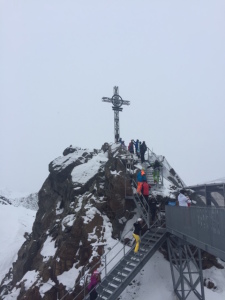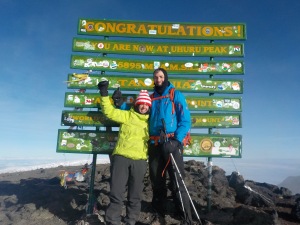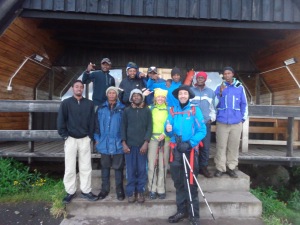Tag Archives: expat
 You have moved abroad to take a fantastic new job. Great achievement! Is it time to congratulate yourself and focus on work and work alone or find a new personal development opportunity through school?
You have moved abroad to take a fantastic new job. Great achievement! Is it time to congratulate yourself and focus on work and work alone or find a new personal development opportunity through school?
People attend executive study programs for different reasons:
- Get an elite school on the resume to improve career prospects or simply satisfy ego
- Meet likeminded professionals to network with
- Personal development: never stop learning
- Learn from professors who are not only academics but also practice your trade
- Finally complete the unfinished education gap by getting a shorter version of that MBA you never got to do
- Intellectual challenge
- Go through a significant career change
- Fill in the gap year
- Work is paying for it. Why not?
- Party and make friends like you are back in college for the first time (usually combined with one or more of the above)
For an expat, an executive study course in the host country can also help
- Get better adjusted in a new country
- Consider new career options if you are following a significant other to the expat location and do not have a work visa or a job planned yet
- Learn about careers and international adventures of fellow students who most likely are expats, have been expats or are considering an expat opportunity
Besides the field of study, key things to consider are
- Cost
- Commitment
Executive education does mean what it sounds like. It is a high quality product and hence it is expensive. It requires significant investment of money and time. Like with reaching any goal, plan and take actions that can get you there:
- Find out if your current employer will pay for it. Even if the company covers a portion of the program, it helps!
- Research scholarships. Yes, some schools may have subsidies for executive education programs, too.
- Be very clear on the time commitment required. Can you fit it into your travel schedule? How much reading is involved? What kind of exams and projects are you going to be faced with? What if you can’t make a session?
Once you have been accepted, fully commit to the program. If you were not the most diligent of students back in high school or university, now is the time to do it for yourself. You will get much more out of the experience if you dedicate the time required from both personal development and academic result point of view.
By Yelena Mackay
Follow on Twitter
Read more Have you been dreaming about an international career? Watching your friends on Facebook posting stories of relocation to cool destinations for that one, really, really amazing job? Or going back to school to a university abroad? One of your friends may have taken a break and moved to the beach to save dolphins in a beautiful destination. All of those stories are fantastic experiences. Why not make your story this year’s story? If you have had enough of waiting, wishing and hoping to do what other people do abroad, this year can be your year to take a leap!
Have you been dreaming about an international career? Watching your friends on Facebook posting stories of relocation to cool destinations for that one, really, really amazing job? Or going back to school to a university abroad? One of your friends may have taken a break and moved to the beach to save dolphins in a beautiful destination. All of those stories are fantastic experiences. Why not make your story this year’s story? If you have had enough of waiting, wishing and hoping to do what other people do abroad, this year can be your year to take a leap!
Those looking for a more rewarding lifestyle abroad, get ready to transplant! Expat or student mentality is great for short-term goals but successful moves abroad are like transplantations. During your move and for a significant time after, you will experience something of the sort what gardeners call a “transplant shock”. Your immune defense is down, you are feeling under the weather, sensitive to the new climate, temperature, and all conditions of your new habitat, poor quality internet access including.
While financial conditions of your move are important, it’s your focus, openness to new ideas, willingness to make new friendships and connections, goals that you set and the planning to achieve them that are key to making a move in the first place and then growing your roots. You will become a successful transplant if you research and prepare well before making the move, get to know the locals instead of staying in your expat community circle, set clear goals for your stay and have an exit strategy. After all, chances are you will have to replant back to your home country. Have no fear, planning sounds much worse than it really is. Setting up new social networks, sharing your joys, doubts and funny stories with friends, family and colleagues back home will make it worth your while.
Here is to the one and only international move that really matters. Yours!
By Yelena Mackay
Follow on Twitter @MovingWtShaking
Read more
 My first move abroad reminds me of my first ever day of skiing. Both events came at a much more advanced age than for most people. Both had two things in common: low visibility and a lifeline, a support structure. The support structure I had a lot of appreciation for consisted of a local friend who mentored me through the whole experience prior to the departure and then picked me up at my first foreign airport. Another friend helped me rent my skiing equipment at a little resort in Swiss Alps, got me somewhere closer to the top of the mountain and delivered into the hands of an expert skiing instructor who, indeed, became a lifeline.
My first move abroad reminds me of my first ever day of skiing. Both events came at a much more advanced age than for most people. Both had two things in common: low visibility and a lifeline, a support structure. The support structure I had a lot of appreciation for consisted of a local friend who mentored me through the whole experience prior to the departure and then picked me up at my first foreign airport. Another friend helped me rent my skiing equipment at a little resort in Swiss Alps, got me somewhere closer to the top of the mountain and delivered into the hands of an expert skiing instructor who, indeed, became a lifeline.
It doesn’t matter how much you read about your destination or talk to people who live there before making the move. Things are going to look and sound familiar, you will know the general direction in which you are headed but don’t expect full clarity of vision on day one. It helps to have someone ahead of you to follow and copy the movements. Don’t stress yourself out by trying to figure out every little detail before you get to your destination. Even if you are an experienced traveller, moving your life to a new location abroad will throw in many surprises. Adjusting to your expat life is a process and it will take some research, a lot of practical experience and work on building new survival skills.
Are there any shortcuts? Sure! Since this is your move, focus on things that are important to you. Let’s simplify it down to 3 steps:
- Think about and/or make a list of what you need to know before you land at a minimum to be comfortable.
- Research your questions online and talk to people who have done a similar move.
- Find at least one local contact who you can turn to for help.
Setting time aside to process what your needs are is important. You can spend days browsing expat sites, reading through a lot of fun and exciting stories of other people’s adventures and still feel unprepared. Focus on what makes up your current environment and how to remap it to your foreign destination. Then do your research. Having someone locally to turn to can be really valuable not only in case of an emergency but also to help create a sense of connection and familiarity with your host country.
Invest a bit of time, think it through, research, follow someone and experience. You will be off bunny slopes and down the black runs in no time!
By Yelena Mackay
Follow on Twitter @MovingWtShaking
Read more I signed us up for climbing Kilimanjaro without much research or understanding of what the experience would actually be like. It was first a vague idea inspired by the story of a friend’s wife who did it for her 50th birthday. We joked about it: it’s ten more years to go for me, so there is enough time to prepare. Then we ran into a few more people who have done it and the idea seemed not that crazy. Plus, the famous snow is going to melt soon, so do we really want to wait ten years to run the risk of not seeing it? When I finally quit my job to finish writing Moving Without Shaking, the book about women expats and international careers, and chose Tanzania as my next stop expat destination to volunteer while doing the final edits, Kilimanjaro idea turned into a project in itself. My book went live on all of the global ebook stores sometime during our climb. Sitting on the beach in Zanzibar two weeks later, I pondered how similar these experiences were.
I signed us up for climbing Kilimanjaro without much research or understanding of what the experience would actually be like. It was first a vague idea inspired by the story of a friend’s wife who did it for her 50th birthday. We joked about it: it’s ten more years to go for me, so there is enough time to prepare. Then we ran into a few more people who have done it and the idea seemed not that crazy. Plus, the famous snow is going to melt soon, so do we really want to wait ten years to run the risk of not seeing it? When I finally quit my job to finish writing Moving Without Shaking, the book about women expats and international careers, and chose Tanzania as my next stop expat destination to volunteer while doing the final edits, Kilimanjaro idea turned into a project in itself. My book went live on all of the global ebook stores sometime during our climb. Sitting on the beach in Zanzibar two weeks later, I pondered how similar these experiences were.
Here are my 6 ways of how climbing Kilimanjaro is like releasing your first book:
1 LIFE IS BEAUTIFUL
Walking through the tropical forest, with rays of sunshine coming through the trees, covered in the brightest green moth, discovering hidden waterfalls, monkeys, pimbi, and unknown bird species I was chatting with our guides from Shah Tours. The “adventure” path of the “Coca Cola” route looked like a fairly easy walk. Why do they tell you to go pole pole (slow slow)? With just a daypack, while the porters are carrying all the food, water and our gear, this is just a walk in the park. Ok, in the forest!
I am going to write my first book! Seriously sitting down to do it now! I will be an author! Telling everyone about it, sharing ideas, recruiting people to contribute their thoughts and opinions on the topic is so much fun! Research and debate are such bliss. No real writing has been done so far.
2 THIS IS REALLY NOT THAT BAD
Reasonably early morning start. Change in landscape after first hour in the forest- more savannah, bushes, grass, some rocks, streams lower on water- still there are a lot of interesting things to see. Another sunny day! Who says it is the rain season? It’s just another day and a six-hour trekking adventure. May be they are right about pole pole after all. It’s getting steeper. The closer we are to Horombo huts, the colder it gets.
Started writing an outline and sketching ideas. Need some structure to get started. The first few chapters have come together well. I am afraid to run out of steam. Writing on the weekends or after work is feeling a bit more tiring than I imagined.
3 WHO SAID IT WAS CHALLENGING?
Acclimatization day! Love it! We walk up for a couple of hours, take in the new scenery. It’s mostly rocks now and very strange evergreen trees scattered throughout the alien landscape. Time to make a small tribute to the mountain gods, a monument out of a few stones, for good luck. We even ask to go a bit further than the guides originally want!
The chapters are flowing. There is enough material from interviews to fill up two books. A couple of short vacations free up enough time to spend on writing. This is really promising! I travel to meet with people who contribute to the book. Really happy to catch up. It can’t be that hard to finish and get people excited about it.
4 WHAT DID I SIGN UP FOR???
A couple of hours into the morning hike we are told that this is the LAST point where the water is collected to be carried up all the way to Kibo huts. This fairly innocent statement suddenly sounds ominous. No water! It’s getting colder. We are closer to five thousand meters. The day before we really enjoyed taking pictures with Kili’s famous Kibo peak in the background. Today, as we are approaching the base camp huts in our well-respected pole pole tempo, I suddenly realize how scary the last part looks. So where exactly is the path? Ah it’s that one, that looks completely vertical. A person is carried past us by two porters racing down. What happened? Oh, just a twisted ankle. Half an hour later, another person, incapacitated and extremely pale is carried by. We don’t ask what happened this time. Well, we can always decide not to do the last bit, right?
I will never finish this book. It’s not that I don’t have any thoughts left, it’s just there is not enough time with working 10+++ hour days in the “real” job. Is there a way out of this? If I don’t finish, I will be one of those people who always talked about writing a book but never followed through. Ugh…How much is left? More than a half! This is going to take forever. Even if I manage to finish- no one will buy it. Why have I invested so much time??? All the blogs are saying new writers like me don’t sell more than 50 copies on average. If you have a message but it reaches only 50 people, does it even count?
5 NO ONE TOLD ME IT WAS GOING TO BE THAT HARD!!!
We wake up at MIDNIGHT. There are two schools of thought as to why the final climb happens overnight. The romantic version is so that the climbers get to see the most beautiful sunset above the clouds. I am starting to believe the second one: if you saw where you were going, none of us, urbanites, would ever make it. The climb begins at 12:30 am. The first hour is the hardest thing I have ever done. The desire to stop and catch your breath every 3 minutes is deterred only by freezing cold. If you stop, the chill sets in right away. Breathing is harder and harder. The time seems to have slowed down. This will never end. Five hours later we get to the rocks. The end is nowhere near in sight. I don’t know that we are almost there. The thought of giving up is the only persistent idea I have. The headache starts. Then nausea.
Just a few chapters in the book remain. It’s easy to say, “just a few”… I come home from work after 8:00 pm, fire up my computer and stare at a page with the cursor blinking at me. The inspiration is gone. On the weekends I rewrite bits and pieces without making any real progress. My day job frustrates me to no end. I feel permanently exhausted. Writing is no fun anymore either.
6 NOTHING CAN STOP ME NOW!
Suddenly we look up and there it is, the board sign for Gilman’s point. We step up, turn around and watch the sun rise. The most beautiful thing I have ever seen. Another hour and a half later we reach the most sought after Uhuru Point. This is what FREEDOM feels like.
One day I come to the office in the morning and realize it is time. I quit and start writing with passion. Inspiration comes back. I register a company, create a plan, sign up for coaching and Myers Briggs certifications to compliment my existing experience, find an online publishing company and finish the book. I have a vast amount of experience working internationally as well as coaching and mentoring people as a manager. What else can I do? I sign up to volunteer in Tanzania for four months and climb Kilimanjaro between two projects. The book goes live and some of my friends start reading it the day we summit Uhuru…
By Yelena Mackay
Serial expat
Founder of Moving Without Shaking Ltd Follow on Twitter @movingwtshaking or @yelenaparker
 Thank you, TEAM, for getting us there!
Thank you, TEAM, for getting us there!
Our SUCCESSFUL Kilimanjaro climb was dedicated to Give a Heart to Africa, an organization that empowers Tanzanian women through offering free classes in Business, English and vocation training.
To download Moving Without Shaking, my book about how to make your expat life a success, please visit AMAZON, iTUNES, BARNES AND NOBLE or GOOGLE stores. For those who still love your paperback, it’s available on Amazon and Barnes and Noble!
 My memories of International Women’s day over the years are a collage of completely different experiences.What were my past highlights?
My memories of International Women’s day over the years are a collage of completely different experiences.What were my past highlights?
Ukraine. Primary school: walking to a small market to buy flowers for my teachers, absolutely mandatory! University: getting flowers from students, having celebration drinks with my women friends, men always congratulating women, trying to do something special on that day.
- America. Despite the fact that the first National Women’s Day was celebrated there, getting blank stares when talking about the holiday to men. Certainly no flowers or gifts are expected. Feeling like a foreigner talking about an exotic holiday. Later discovery: lots of events to celebrate women’s achievements sponsored by both corporations and non-profits.
- Switzerland and UK. Pretty much the same as the US: unnoticed on a relationship or family level but events to empower and celebrate women are held close or on the day.
Was there one particular day that stood out? Not until this year.
2014 International Women’s day was nothing like I have ever experienced or expected. It was a Saturday at the end of my first week teaching business as a volunteer at Give a Heart to Africa in Moshi, Tanzania. There are two of us on site at the moment. Eva is a psychology student from Germany working here for a month before returning back to school. We have come here to work with Tanzanian women who are learning how to start a business, and working on their English to get a better opportunity in life through education. The center is free for all of the students and volunteer work and donations are critical. This year, a group of truly international women, inspired and organized by WHOA Travel, were climbing Kilimanjaro to summit on the 8th of March. What a way to spend the International Women’s day! They have made it their goal to support Give a Heart to Africa women’s school and efforts by raising money as part of their adventure. Two of our current students, Christina and Magdalena were invited and successfully climbed with WHOA travelers.
Eva and I spent the week teaching at the foothills of Kilimanjaro and talking about the brave WHOA Women and how we could make this year’s IWD memorable for all the students. It’s never too late to celebrate women so the following Monday, we got to meet at school and deliver a presentation about women’s rights, equality, the history of this holiday, its modern meaning, and where in the world it is observed as a holiday.
It was amazing to have all WHOA Women on site with us. We finished the morning splitting into small discussion groups to talk about women’s rights in Tanzanian society, what our students would do differently when they raise their children and ideas that they have to help women make progress. This was such a unique opportunity to learn more about women’s rights in Tanzania and compare with many countries around the world.
2014 is added to my bank of International Women’s day memories as something that is hard to live out better. It could have only been improved by joining the climbers at the summit on that day.
By Yelena Mackay
Serial expat. Founder of Moving Without Shaking Ltd
Follow on Twitter
International Women’s Day Image Credit
 Volunteering abroad is no longer reserved for those who can dedicate 2 years to Peace Corps, recent graduates or retirees. If you haven’t been following the developments in this area, you will be surprised to find out that volunteering abroad as well as voluntourism have completely gone mainstream. In many emerging economies, non-profits have set up an amazing variety of projects that are fueled by the energy of those who just graduated and are looking for their first work experience, adventure and opportunities to see the world before they dive into their professional careers. Whether you are a doctor, a teacher, a marine biologist or still soul searching and have no particular professional experience, somewhere in the distant corner of our planet your free time can be put to good use. Not everyone can afford to have a full gap year. Many organizations are catering to those who just have a week or two to spare.
Volunteering abroad is no longer reserved for those who can dedicate 2 years to Peace Corps, recent graduates or retirees. If you haven’t been following the developments in this area, you will be surprised to find out that volunteering abroad as well as voluntourism have completely gone mainstream. In many emerging economies, non-profits have set up an amazing variety of projects that are fueled by the energy of those who just graduated and are looking for their first work experience, adventure and opportunities to see the world before they dive into their professional careers. Whether you are a doctor, a teacher, a marine biologist or still soul searching and have no particular professional experience, somewhere in the distant corner of our planet your free time can be put to good use. Not everyone can afford to have a full gap year. Many organizations are catering to those who just have a week or two to spare.
If you are a careerist who can’t imagine disconnecting from your paid work, climbing the ladder and pushing yourself to the next achievement, there are many great reasons for you to join the students, recent grads and retirees volunteering abroad movement. Until recently, I was one of you. Unpaid work- you must be joking! I can barely have time to have a vacation. Thankfully, my current residence is in the UK, so I did get some good amount of paid holidays each year. When I quit my job running commercial operations at a software company last year, I had 2 immediate goals: finish my book on expat and life abroad success and go volunteer in Tanzania. I am writing this on the way to my first project site in Moshi and contemplating why this feels like the best decision in my life.
Why should a careerist sign up to volunteer abroad?
1. Have a purpose for your gap month/year.
It’s hard to just quit a job and relax. The reasons you are a workaholic or hmm… careerist are rooted in your desire to be busy, involved, useful, perhaps feel important, and successful. Time flies unbelievably fast whether you are gainfully employed or taking a break. If you planned to have just a few months off or even a year, it will be over before you know it. Don’t find yourself having regrets when that long thought- after break is over and you still “haven’t done anything useful”. Donating your time and knowledge to those who truly need it is mutually rewarding. Do something meaningful with your break!
2. Get out of your comfort zone.
If you are a careerist, chances are you have done reasonably well for yourself. Your job is challenging. You feel like you have made a lot of progress. You generally have been in control of your career and your choices. May be that’s why you have become somewhat rigid in your views and too comfortable? Imagine letting go for a period of time: having no control over exactly what your assignment is going to be, being flexible, figuring out local rules and how to do a lot with really little and mean it.
3. Learn something new and do something for the first time (again).
You have travelled a lot for your job. Nothing can really surprise you- so many relationships have been built, problems solved, numbers met, and exciting places seen. If you weren’t an adventurous backpacker growing up, chances are, there are still a lot of new places and ways of adjusting to them that will be exciting. What about a new language? Fine, you already speak 2 or more European languages. How about Swahili? What better way to share a new culture than full immersion into the local language?
4. Make new friends.
When was the last time you made a new friend? Not a networking buddy, or useful contact but a friend? This is your chance to meet new people, both locals who you will help and other volunteers. This shared experience will certainly create new bonds.
5. Find the new YOU.
There was a reason you wanted to have a “gap”. Being away, learning new things, meeting new people, changing the familiar pace of your life, doing something meaningful will put you on track to discover that reason. Who do you want to be when you come back? Were you on the right career track? Did it give you the satisfaction you hoped for? Is it time to consider what your true passions are and follow them? New career, back to school or on to a new business venture, or may be, the career was right, and the new employer is all you need to find YOU again.
Next few months I will be spending in Moshi and Zanzibar working in education programs aimed at empowering women and children. I will be sharing my learnings on this blog.
By Yelena Mackay
Serial expat. Founder of Moving Without Shaking Ltd
Follow on Twitter
Read more What comes to mind when you hear the word expat?
What comes to mind when you hear the word expat?
A Glamorous international life style
B Amazing travel
C Being constantly on the move
D Meeting interesting people
E All of the above
I still have all these associations, now living in the UK, my country No 4. Being an expat is truly all of the above and more. That’s why so many people dream about it, work towards it, and invest into making their first move abroad. You need to have the right mindset about your transition, particularly in order to successfully reevaluate must- haves and nice- to-haves in your life.
My first flight across the pond came with a seat at the very back of the plane, right before the lavatories. It didn’t really matter. It was taking me to the US to fulfill my dreams. The ticket was a must-have. The quality of the seat was not relevant. It was equal in price to my old car, so I thought it to be a fair exchange.
Years later while planning the move to Switzerland, I was considering whether I had to have a car during my two year assignment. In California, I drove a nice little sporty convertible and believed I forever joined the car culture. I was not going to be able to use infamous public transport every day again! Well, for those who haven’t experienced Swiss transportation system yet, prepare to be amazed when you finally try it.
Swiss trains are still my favorite way to travel. They are always on time, very comfortable and extremely frequent. Added bonus: you can write your blog or read books on coaching throughout the whole journey. City transport is very reliable and can get you to the office in much shorter time than I spent every morning driving between San Jose and Mountain View on highway 101. It did take some adjustment and initial surprise at long forgotten discomfort of having to carry groceries, laptop bags and building more precise schedules of your life to fit everything in. The benefits included rapid weight loss from much more walking every day and savings to use towards that very glamorous travel around Europe.
We form new habits and adjust to new circumstances much quicker than we imagine. If you start with a mindset that you are giving something up and it’s going to be annoying, uncomfortable, or something that you will have to “deal with”, that’s precisely what you will get. Evaluate your options in the new country. Is it wise to spend money on the same things you owned or used? What does an equivalent level of a life style actually mean? No matter how great your new work contract is, understanding your budget is important. May be by giving up a little, you will gain a lot more!
By Yelena Mackay
Follow on Twitter
Read moreLeave a Reply
You must be logged in to post a comment.



